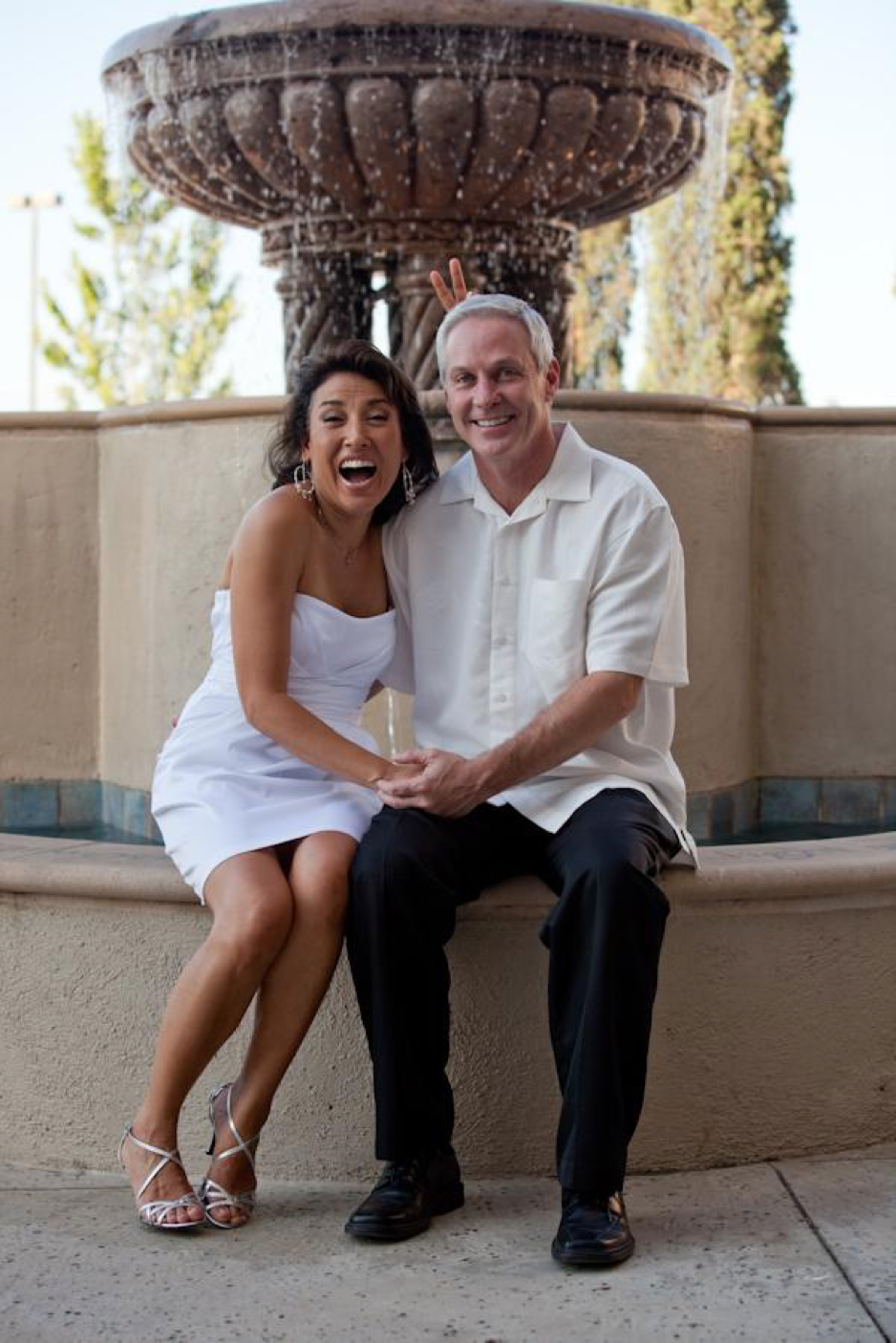Elizabeth Carroll, age 60
WHAT MIX ARE YOU?
50% Japanese, 20% Welsh, Mixed - American Indian, Irish, Russian
WHERE DO YOU CURRENTLY LIVE?
Texas
IS THE COMMUNITY YOU LIVE IN NOW DIVERSE?
Yes
WHERE DID YOU GROW UP?
I grew up in Griffith, Indiana, a non-diverse (all white) south Chicago suburb. There were no other mixed kids to identify with, in fact I was bullied for my mixed race, called the N-word and actually was put in the hospital with a concussion because the bullying became physical. Being identifiably but non-specifically mixed was really hard because there wasn’t a group that organically accepted me. A lot of the white kids ostracized me, and the next closest racial connection was with the Latinas. Unfortunately, the Latinas wanted nothing to do with me and in fact threatened to kick my ass if I didn’t steer clear of them.
HOW DID YOUR PARENTS MEET?
During the Korean war, my father was stationed in Japan and my mom worked at the military PX. Interestingly, my parents did not speak a common language when they got married. When my mom finally became fluent in English, boy was my dad surprised with what she had to say!
WERE THERE ANY SIGNIFICANT OBSTACLES IN THEIR RELATIONSHIP CORRELATED TO YOUR BACKGROUNDS?
Different languages, races, countries, family hostility toward the Japanese. My dad’s mom was extremely racist against my mom and unfortunately, because my grandmother had spent all of my Dad’s military pay, he had to reenlist for six months and left my mom alone with my grandmother. She describes this as total hell and humiliation and borderline abuse.
HAS YOUR EXTENDED FAMILY ALWAYS BEEN SUPPORTIVE OF YOU BEING MULTIRACIAL?
No. While nothing was said to me directly, my uncle, who married a Mexican woman was trash talked for having married outside the white race. My Mexican cousins were always marginalized in the family.
DID YOU CELEBRATE TRADITIONS FROM BOTH SIDES OF YOUR FAMILY?
No, the Asian culture values American assimilation. So much so that my mother, Miyako Araki, changed into Judy and started smoking cigarettes as an attempt to fit in.
WERE THERE MULTIPLE LANGUAGES SPOKEN IN YOUR HOUSEHOLD?
No. The only Japanese that was spoken in our home was some slang and some food terms. I remember asking my mom one time how to say “mikan”, (Japanese for tangerine) in Japanese and got a big laugh. I remember reading Shogun as an adult in being amazed at how little I knew about the Japanese culture.
WHAT DO YOU ENJOY MOST ABOUT YOUR CULTURAL BACKGROUND?
Food, physical characteristics
WHAT ACTIONS DID YOUR PARENTS TAKE TO TEACH YOU ABOUT YOUR DIFFERENT BACKGROUNDS?
None
DID YOU TALK ABOUT RACE A LOT IN YOUR HOUSEHOLD WHEN YOU WERE GROWING UP?
No, but there was a lot of race bashing in my household. I remember having a little dustup with my dad when I was in the seventh grade. He said something derogatory about a race, and I said to him,” how can you talk like that when you are in a mixed race marriage and your children all look like Mexicans?” That didn’t go over so well.
DO YOU IDENTIFY AS MIXED OR SOMETHING ELSE?
Mixed brown race
DOES RACE WEIGH INTO WHO YOU CHOOSE TO DATE? OR IF YOU HAVE A PARTNER WHAT RACE ARE THEY?
No, my husband is white and before me he never dated anything other than fair skinned, blonde haired, blue-eyed women. This pushed a lot of my buttons and I brought to light my racial wounding. The good news is that we now have a Marriage Boot Camp drill called “hot buttons” to help others dig out their hidden wounds.
WHAT DOES BEING MIXED MEAN TO YOU?
That I don’t fit in
DO YOU HAVE A LOT OF FRIENDS WHO ARE MIXED?
No, but I have Black and Hispanic friends who have a beautiful sense of racial self-esteem.
ARE THERE ANY COMMENTS YOU ARE REALLY TIRED OF HEARING FROM PEOPLE IN REGARDS TO RACE/CULTURE?
My biggest pet peeve is the victimism that we are seeing in our culture today. Too many pity parties about racial injustice and not enough solution oriented cultural healing.
WHAT IS YOUR DREAM FOR THE FUTURE OF AMERICA IN REGARDS TO RACE?
Color blind, character matters, race does not. Pretty much everything Martin Luther King said.
ANYTHING ELSE YOU WANT TO SHARE?
We need to value our racial heritage, revel in the beauty and refuse to identify in any negative way, especially as victims. While victimization is very real, identifying as a victim- victimism, is a toxic barrier to having a fulfilling life and fulfilling relationships. Please check out a talk that I gave at Remington College, which gives a full autobiography of my story.



